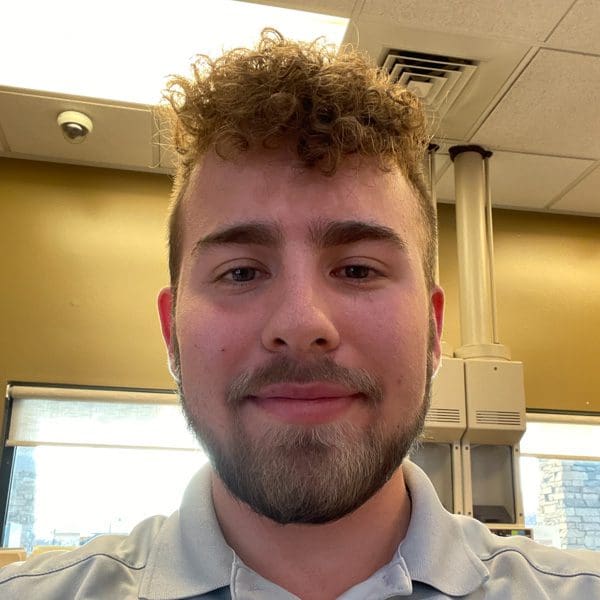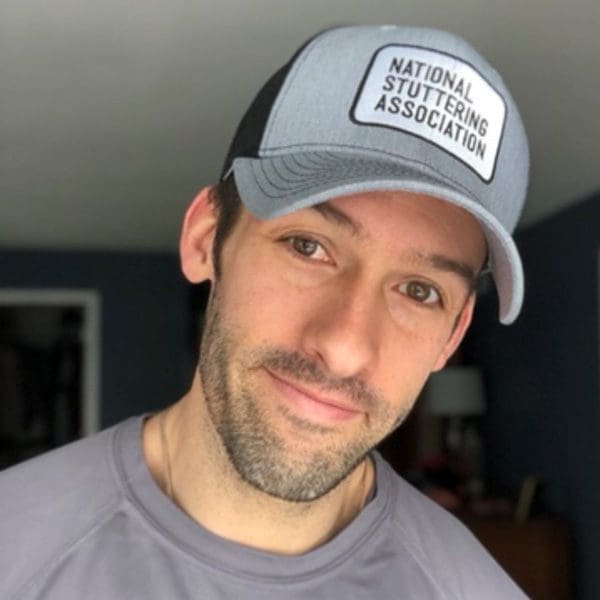Ashley DeVitto
Barnstead, NH
Cat Scan and X-Ray Technologist
Briefly describe your daily job duties.
As a CT and X-Ray Technologist, I use equipment to produce images of human anatomy which helps Radiologists diagnose a wide variety of diseases, disorders, etc. This means that I prepare the room for the exam, call the patient from the waiting room, explain the procedure, and then perform the X-Ray or CT using different positioning of the patient and different protocols to be followed. It often means starting an IV or asking several questions to a patient. I then send the images and information to the Radiologist for it to be read for a diagnosis.
As a person who stutters, share the most challenging part of your job.
As many of us who stutter know, speaking on the phone can be our nightmare. I often have Doctors calling and asking about protocols or looking for a reading on an exam I’ve completed. This can be daunting as some people are impatient and not always kind. While they aren’t always directly rude, you can sometimes feel their impatience which only makes me more anxious, making it more difficult to speak.
One of the most challenging things for me is calling people from the waiting room to come in for their exam. Sometimes the room is full and I open the door to have several heads look up at me in anticipation. I often freeze in this moment and the name doesn’t always come out. Funny how we develop habits over time to help us get by. Sometimes, I say “Mister” so and so before the name because it’s easier for me to say. Or I’ll just use their first name, or just their last, whatever I think will come out easier. Regardless, it’s stressful. Then once the name comes out, I wonder if the patient is thinking that I’m incompetent and can’t be trusted to perform their procedure.
There have been two times in my fifteen years in my job that I have been asked for a different technologist once I start speaking. Ironically, the one they end up with is usually less experienced. Fortunately, I have a great support system and a boyfriend who talks me down when I’m on edge, and who meets me for lunch to get me through a tough day.
Stick with those you know you can count on. There’s no shame in confiding in someone and shedding tears when things get to be too much.
Did you self-disclose your stuttering during the job hiring process? If so, how did you do it and how do you currently disclose your stuttering to unsuspecting co-workers, clients and or customers?
I did not disclose my stutter during my initial interview. It, pun intended, speaks for itself. I do disclose it to some patients when they seem irritated or impatient or make the comment that we get all the time, “What, you don’t know your own name?” Most people are understanding and kind. My name is the hardest thing for me to say. Go figure. If I stumble on my words, I will sometimes say, “I do have a speech difference and it may take a moment for me to get it out, but I assure you that you are in good hands.”
Describe how stuttering makes you a better, more valued contributor at work.
My speech has definitely made me a humble, empathetic person which is greatly needed in the healthcare field. I can sympathize with anxiety and fear that I may not otherwise understand. It has made me a patient person in knowing that sometimes anxiety, or other challenges, aren’t always seen by the naked eye. We don’t know what someone is experiencing in their lives, just as people don’t know I stutter, until they do. Kindness is key.
What is your proudest moment at your current company?
My proudest moments come from patients that commend me on a great job. I’ve had several people tell me that I am in the field I’m meant for, that I have a calming nature, or that I made something scary very easy. Some patients have even requested me by name. Moments like that are the ones I carry with me from day to day at work.
What are your long-term career aspirations?
Long term, my goal has always been to be a Doctor. Truth be told, I didn’t go for it after high school out of fear. How could someone who stutters get the words out fast enough to save someones life? It has taken many years to see my value in this field and to know that my stutter is exactly what would make me a better Doctor. I’ve taken some classes through a program run by Harvard Medical School and am slowly working my way there. While it may never happen at this rate, with working full time and being a single mother of two, I am eager to learn which will only benefit myself and career in the long run.
What’s your best advice for people who stutter just entering the workplace and for those in a career striving to achieve greater success?
My biggest advice would be to be proud of your stutter and learn to accept it. This does not come overnight. I struggled for years and would have done anything to make it go away. Time, growth, vulnerability, and life experience has taught me that I was made just how I was intended. Think about it, when we see someone with a disability, do we make fun or think any less of them? No. We are often amazed by what they overcome and how they persevere. Be that person. Let people see that nothing can stop you.



